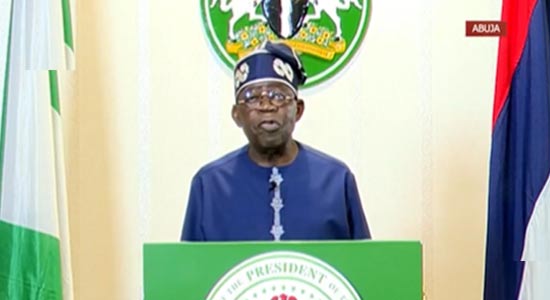By any honest reckoning, Nigeria was already bent beneath the weight of misgovernance when President Bola Tinubu seized the reins of power in May 2023. But what has unfolded since is not just economic hardship – it is a deliberate, systemic immiseration of a people already brought to their knees. Where Buhari left ruin, Tinubu has sown ashes. If the former dulled the blade, the latter wields it with a theatrical flair, cutting through what remained of the people’s dignity in the name of reform. This is not governance. This is state-sanctioned suffering masquerading as fiscal discipline.
Let us speak plainly: Nigeria is starving. Not metaphorically, literally. The so-called reforms of the Tinubu administration have birthed a nation of beggars and broken backs, where the price of rice dictates household prayers, and school fees are calculated with panic, not plans. In the name of “subsidy removal” and “foreign investor confidence,” millions have been fed into the grinding gears of economic experimentation. It is not reform. It is a funeral dressed as a banquet.
In one arrogant swoop, hours into his presidency, Tinubu announced the end of fuel subsidies – without a plan, without consultation, without safety nets. He declared it like a man tossing breadcrumbs to the crowd from a golden chariot. What followed was not the “bold step” his admirers proclaimed. It was the opening of the gates of hell.
Petrol prices tripled overnight. Transportation costs soared. Markets turned to theatres of weeping. From Lagos to Lafia, every Nigerian began to feel the bite. Not in theory, but in their belly. The “floating” naira, stripped of protection like a ship torn from anchor in a storm, soon collapsed in value. ₦460 per dollar became ₦1,600. The Central Bank watched, stunned. Tinubu’s advisers clapped. The people starved. We were told pain was part of the process. That this was the “medicine.” But what healer prescribes poison without cure? What doctor amputates the limb before diagnosing the disease?
Macroeconomics Massacre
Every indicator of Nigerian life has gone from bad to biblical in its devastation. Food inflation is no longer a statistic; it is a daily sermon in every household. Tomatoes, once mocked for their volatility, now command the kind of respect reserved for Swiss watches. A bag of rice is now a family heirloom. A bar of soap is rationed like gold. Meat is a Sunday miracle, shared like communion. Electricity tariffs have soared while the power supply remains epileptic. Wages have stagnated, frozen in time like relics from a saner past. A ₦70,000 salary, once humble but livable, is now an insult. Rent is unpayable. Healthcare is a luxury. Children faint in classrooms from hunger. The only inflation this administration has controlled is that of public outrage.
Tinubu’s reforms are not tailored for Nigeria. They are xeroxed from the handbooks of foreign consultants who wouldn’t last a week in Warri or Aba. Structural adjustment without structural empathy is nothing but economic sadism. This government speaks of investor confidence while citizens pawn their dignity to eat. There is no confidence in a country where life expectancy is falling, and hope is traded for bus fares.
A Feast for the Few, A Famine for the Rest
While the masses gnash their teeth, the elite toast to “bold leadership.” Convoys of government SUVs snake through fuel-starved cities. Ministers fly first-class to global summits to discuss how to fix the crises they manufacture at home. The same men who beg citizens to “tighten belts” dine at banquets funded by the very people they impoverish. This is not just inequality. It is a spit in the face of every hungry child, every unpaid teacher, every market woman praying over her garri. Palliatives, when they come, are distributed like party favors. Bags of rice emblazoned with politicians’ faces become the last insult in a parade of humiliation. And yet, with every pronouncement, this administration continues to tell us: “We are on the right path.” If this is the right path, then it leads straight to the edge of national collapse.
The Last Dance of the Dispossessed
Let us bury the lie once and for all: reform is not an excuse for cruelty. Reform does not mean that children must drop out of school, that families must choose between food and transport, that old women must hawk pepper on the roadside to survive. Real reform uplifts. It balances justice with strategy. It is built on compassion, not coercion.
What Tinubu has done is not transformation. It is demolition. It is the economic equivalent of arson -burning the house down while claiming to redecorate. And while Nigerians groan, what does the ruling class discuss? 2027. Who will run. Who will win. Who will be “loyal.” They gather in luxury, trading influence like stockbrokers, while the country gasps for breath.
The Nigerian spirit, long abused, is now being eulogized by those who broke it. Resilience is not a virtue when it is forced. It is a cry for help. Youths are leaving in droves, not for dreams, but for survival. The best minds are fleeing a homeland that treats them like dispensable digits. The ones who stay seek refuge in betting shops, prayer houses, or crime. We are not “on course.” We are in crisis. And history will not forget.
Two years of Tinubu’s economic revolution have left a trail of ruin. What was once hardship hardened into despair. This is not how nations are built. This is how nations break. Let it be known: you cannot reform people into graves. You cannot demand sacrifice while feeding the elite with silver spoons. The hunger in Nigeria is no longer symbolic; it is the national anthem. And unless something changes, drastically and immediately, the only legacy left for this administration will be this: the government that took a bleeding nation and bled it dry. There is no poetry in suffering. Only rage. And rage, Mr. President, does not go quietly.





